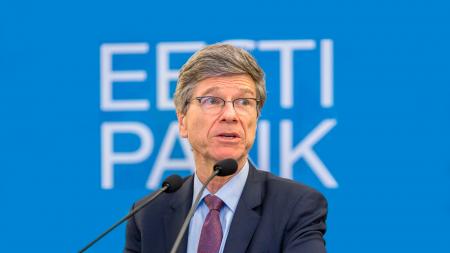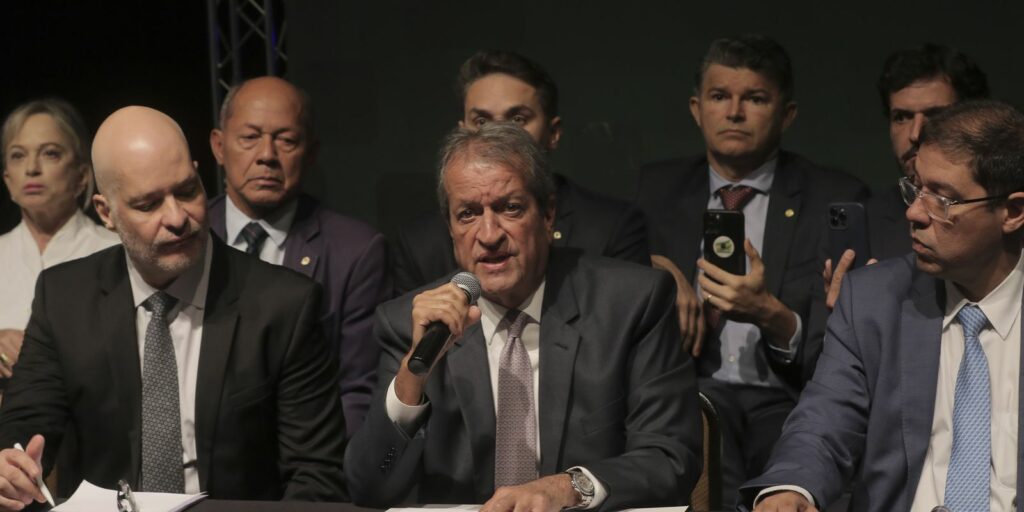The director of the Center for Sustainable Development at Columbia University, jeffrey david sachsquestioned the role of the United States in sustaining the health of the international macroeconomy in the last ten years, with the consequent impact that this economic policy generates in developing countries.
the academic urged Argentina to raise these imbalances within the framework of the G20 since in his opinion the “cooperation” of the central economies is essential in a “serious macroeconomic context, which possibly worsens in the short term.”
#JornadasBCRA | The first panel is closed by Jeffrey Sachs with his presentation on ‘The role of diplomacy in sustainable development’. moderate @jorgecarreraok Y @carreras_mayer. ▶️ https://t.co/cZQ3Tnom93 pic.twitter.com/kdzr8ug9ku
– BCRA (@BancoCentral_AR) November 23, 2022
Sachs made these statements at the Monetary and Banking Sessions organized by the Central Bank of the Argentine Republic (BCRA).
“Argentina’s problem is its reputation, not its reality. If you compare the fiscal balances of Argentina and the United States, I would prefer to have Argentina’s, with lower debts and lower deficits,” Sachs said.
In fact, he admitted that if the “name of Argentina” were taken from these balances, nobody would be very worried.
“Argentina’s problem is its reputation, not its reality. If you compare the fiscal balances of Argentina and the United States, I would prefer to have Argentina’s, with lower debts and lower deficits”jeffrey david sachs
For the American academic, the world is experiencing “the main economic crisis since the early 1980s, now with a dangerous war, therefore it is essential that international financial institutions provide greater loans to countries that make structural investments, for example in green energy”.
“The world crisis risks losing control and I don’t see the will in the capital markets to collaborate”Sachs warned.
As for the behavior of markets and multilateral credit organizations to promote better environmental conditions, he indicated that “long-term financing with low rates is necessary, but rich countries do nothing for energy transformation.”
“The problem is the high interest rates, I would like to see the IDB and the CAF multiply their financing for green energy tenfold. Someone should tell the United States that it generated 20% of this disaster and, therefore, it must do something about it,” emphasized the economist.
As a global concept, beyond the environmental phenomenon, he proposed a “reform of the monetary and financial system because the Bretton Woods agreement (promoted the creation of the IMF and the World Bank after World War II) came to an end“.
“The debt system is unfair and must be fixed, so the G20 must think big because new monetary and financial provisions are needed”jeffrey david sachs
“The debt system is unfair and must be fixed, which is why the G20 must think big because new monetary and financial provisions are needed,” he reflected.
For his part, the former deputy executive secretary of ECLAC, Mario Cimoli, called for rethinking new development policies, based on changes in strategy in different regionswhile Latin America “falls asleep in the debates”.
In this debate, the region’s structural conditions “are very weak and there will be great pressure from the central economies to return to the model of the 70s/80s.”
Therefore, in this context, Cimoli proposed not only to analyze “distributive and fiscal” issues, but also to “recompose investments with an increase in productivity, which represents a new development policy.”
In turn, the professor at the University of Massachusetts Amherst, Jayati Ghosh, highlighted the importance of taxing more decisively the “wealth of citizens with higher incomes, as well as multinationals”.
He also suggested that regional investors in lithium not only push for its “extraction but also commit to transferring technology.”
Finally, the Brazilian Luiz Pereira da Silva (deputy director general of the Bank for International Settlements) expressed that “central banks must be tough on the problem of inflationbecause we are at a high risk of having high inflation for a prolonged period”.
The sessions will continue next Wednesday with the participation of Humberto Colmán Castillo (director of the Central Bank of Paraguay), Roger Edwin Rojas Ulo (president of the Central Bank of Bolivia) and Julio Velarde (president of the Central Bank of Peru).
















